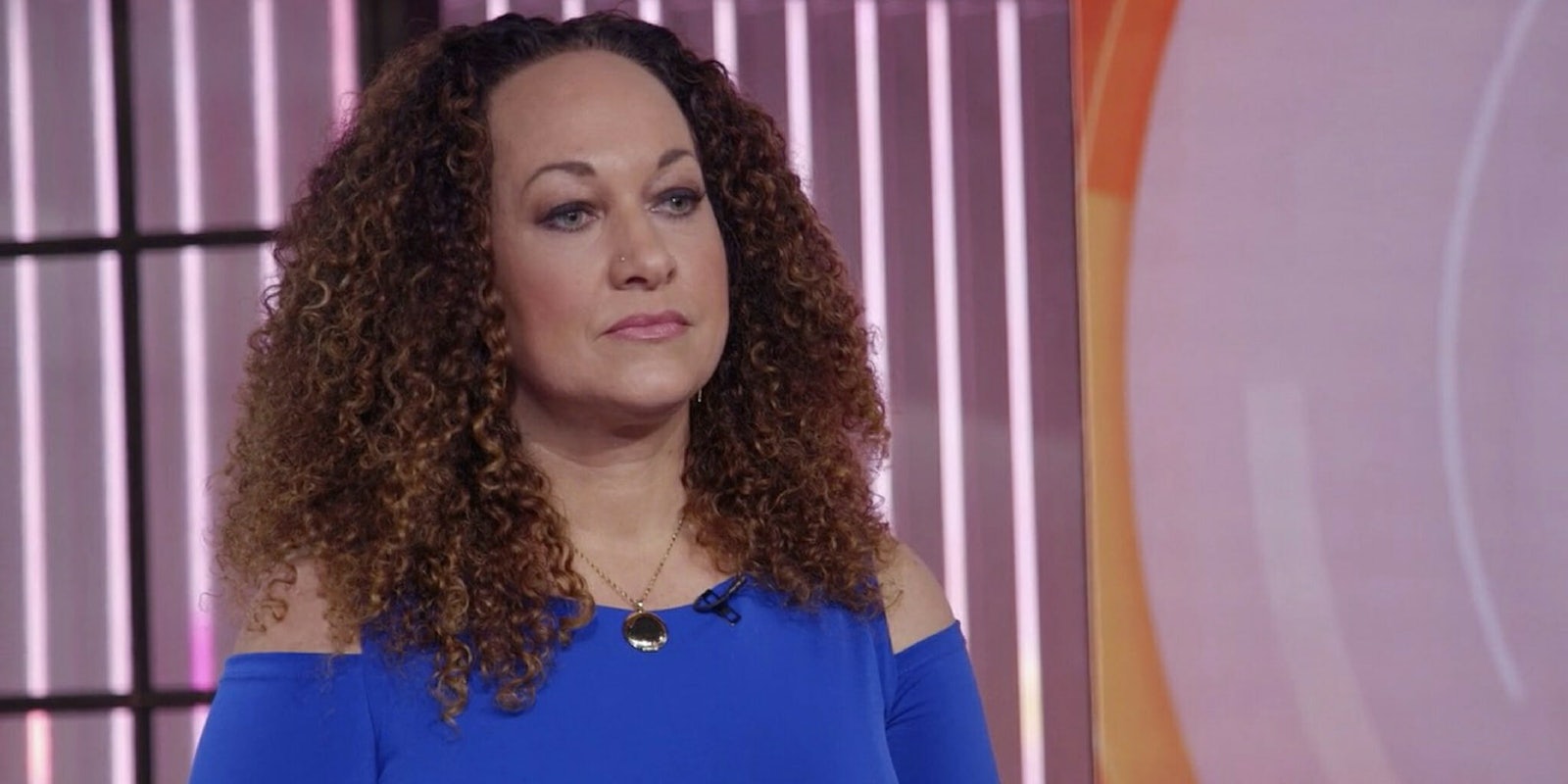If Rachel Dolezal had trouble believing she’s a white woman, a new felony charge might snap her back to reality.
Dolezal, the white woman who was revealed to be performatively living as a Black woman in 2015 and genuinely believes she’s “transracially” Black, has been charged with first-degree theft by welfare fraud, perjury in the second degree, and false verification for public assistance after receiving more than $8,000 in welfare, according to Spokane, Washington, news station KHQ. (As the Root pointed out, white people make up the majority of welfare beneficiaries.)
Between August 2015 and November, Dolezal, who is referred to in court documents by her legal name change Nkechi Diallo, received $8.747 in food assistance and $100 in childcare assistance.
An investigation into Dolezal’s case began in March 2017, after the Washington State Department of Social and Health Services Office of Fraud and Accountability received information that Dolezal had gotten a book published while she was also getting public assistance.
While her records reported her income was less than $500 per month, a subpoena of her self-employment records showed that deposited about $83,924 into her bank account between August 2015 and September 2017 from her book deal, speaking engagements, and more. Aside from a one-time payment of $20,000, however, Dolezal hadn’t reported a “change of circumstance” to the department. Dolezal voluntarily met with the office last month for an interview but stated she previously disclosed all her income and didn’t know about these “discrepancies.”
READ MORE:
- A guide to (not) using the N-word
- Living with the constant threat of death as a Black American
- White feminism is fertile ground for white nationalism
“The state of Washington seeks prosecution and restitution in this matter. In addition, the Department requests Nkechi Diallo be disqualified from receiving Food Assistance for at least a 12 month period for breaking a Food Assistance rule on purpose. This is known as an Intentional Program Violation,” the court documents read.
If found guilty, Dolezal could face up to 15 years in prison.
H/T the Root
